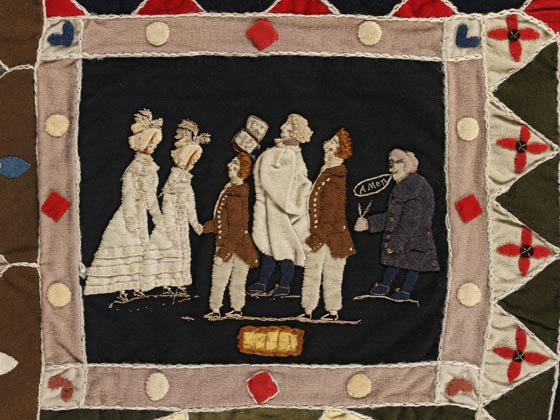
There was a tugging in my heart today and a longing I couldn’t place.
Oh, it was probably just nostalgia brought on by spring weather. The sweet, chilled spring air came in and I pulled out last year’s jacket. What was in the pocket but a pack of now-soggy gum and a book of matches from a fancy night out last spring. When these sorts of things happen, I need to read poetry.
After slogging through an afternoon’s worth of paper on my desk, I went to one of my favorite poetry anthologies to find something expansive. I was hoping I might find a poem on moving or relocation: I arrived in Chicago this morning at dawn and I have one week to wrap up all the ends here before trundling off to Manhattan for the summer. (Or longer. Probably longer.) When you crush up your arm, you need surgery. When you realize you’re about to say goodbye to the view from your bedroom, you need poetry.
I did not find a poem about relocation. What I did find was really good, though, especially if any part of what you do for a living involves sewing. And I know you’re out there.
“Song of the Shirt” is a poem by poet, writer, and humorist Thomas Hood, written in the 1820s in England. It’s about the suffering of the factory drudge, told from her perspective. It’s pretty bleak; it also pretty damn relevant. The refrain, “Work–work–work,” is as imbedded in our discourse as ever. I read it and cackled like a crazy person; she’s got that right. The poem was especially interesting/fitting because she speaks of spring.
I hope you enjoy the poem, as much as it can be enjoyed. In its admonishing way, it’s a little like being forced to take a dose of nasty medicine. But I said I needed help from a poem and that is exactly what I got.
Song of the Shirt
by Thomas Hood
With fingers weary and worn,
With eyelids heavy and red,
A woman sat in unwomanly rags,
Plying her needle and thread—
Stitch! stitch! stitch!
In poverty, hunger, and dirt,
And still with a voice of dolorous pitch
She sang the “Song of the Shirt.”“Work! work! work!
While the cock is crowing aloof!
And work—work—work,
Till the stars shine through the roof!
It’s O! to be a slave
Along with the barbarous Turk,
Where woman has never a soul to save,
If this is Christian work!“Work—work—work,
Till the brain begins to swim;
Work—work—work,
Till the eyes are heavy and dim!
Seam, and gusset, and band,
Band, and gusset, and seam,
Till over the buttons I fall asleep,
And sew them on in a dream!“O, men, with sisters dear!
O, men, with mothers and wives!
It is not linen you’re wearing out,
But human creatures’ lives!
Stitch—stitch—stitch,
In poverty, hunger and dirt,
Sewing at once, with a double thread,
A Shroud as well as a Shirt.“But why do I talk of death?
That phantom of grisly bone,
I hardly fear his terrible shape,
It seems so like my own—
It seems so like my own,
Because of the fasts I keep;
Oh, God! that bread should be so dear.
And flesh and blood so cheap!“Work—work—work!
My labour never flags;
And what are its wages? A bed of straw,
A crust of bread—and rags.
That shattered roof—this naked floor—
A table—a broken chair—
And a wall so blank, my shadow I thank
For sometimes falling there!“Work—work—work!
From weary chime to chime,
Work—work—work,
As prisoners work for crime!
Band, and gusset, and seam,
Seam, and gusset, and band,
Till the heart is sick, and the brain benumbed,
As well as the weary hand.“Work—work—work,
In the dull December light,
And work—work—work,
When the weather is warm and bright—
While underneath the eaves
The brooding swallows cling
As if to show me their sunny backs
And twit me with the spring.“O! but to breathe the breath
Of the cowslip and primrose sweet—
With the sky above my head,
And the grass beneath my feet;
For only one short hour
To feel as I used to feel,
Before I knew the woes of want
And the walk that costs a meal!“O! but for one short hour!
A respite however brief!
No blessed leisure for Love or hope,
But only time for grief!
A little weeping would ease my heart,
But in their briny bed
My tears must stop, for every drop
Hinders needle and thread!”With fingers weary and worn,
With eyelids heavy and red,
A woman sat in unwomanly rags,
Plying her needle and thread—
Stitch! stitch! stitch!
In poverty, hunger, and dirt,
And still with a voice of dolorous pitch,—
Would that its tone could reach the Rich!—
She sang this “Song of the Shirt!”

Julie Parrish
Really, Mary?
You are leaving one brilliant gem of a city and going to another brilliant gem of a city, not
the a time machine to the Industrial Revolution. It’s absolutely gonna be ok. We’ll treat you right in NYC—-promise.
More importantly, how is Yuri’s nose?